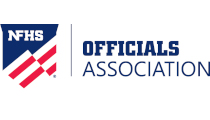Whether they are "old wives tales", traditions handed down, bad advice, or just plain lies, thoughts and ideas that hold no validity in the officiating world have a tendency to keep presenting themselves. And, unfortunately, smart officials many times believe dumb things. For example:
- I can make up rules to get out of a problem. Ignorance is not knowing while stupidity is being ignorant twice. Ignorance may be a viable excuse for the brand new official just starting out and trying to manage all the rules in his/her mind; but there is no excuse for stupidity as per the above definition. In actuality, making up a rule to avoid an issue magnifies that official’s lack of rule knowledge and also brings into question ethics and integrity. When officials stay in the book, they stand on solid ground. Officials who make rulings based on the rules as written are extremely easy for supervisors and assigners to defend.
- I can learn everything I need to know by myself. One cannot reach a destination utilizing isolation education. Sharing and interactive discussions with fellow officials are crucial in growth and advancement, if for no other reason than networking. Officials who only read the rulebook and do not collaborate with others miss out on vital discussions regarding interpretations, applications and purpose of particular rules. Be active - go to meetings, attend clinics and camps, and be involved in rules discussion sessions.
- If a coach likes me, he won't give me any problems. The basic tongue-in-cheek premise is that coaches don't like officials! More precisely, during the game, coaches don't like officials. Officials are in charge of a game coaches are trying to win, and in many instances, they are perceived to be a barrier to that goal. Their job is to coach and win; officials’ jobs is to enforce and not care who wins!
The vast majority of coaches are great people and individuals off the court, but once the game starts, their perspective will become distorted and their mindset will change. Chumming with them before, during and after the game rarely changes their viewpoint. Keep all relationships with coaches at a highly professional level. Refrain from addressing them by their first name. Be respectful even in volatile situations.
- There is no problem wearing team colors to a game. Sometimes it is little things that separate the great official from the good official. More often, it is common sense that separates the good official from the bad. The smart official researches the teams involved in his/her assignment, including little things like what colors represent the schools, and avoid wearing them. A little thing - yes, but it is the little things that teams, fans, coaches and parents pick up on and reach false conclusions. In the same category, don't spend more time with one coach than the other, don't chat with fans, don't hug kids, and don't criticize fellow officials while sitting in a crowd watching a game.
- I don't need to read the rulebook regularly. A great looking official lacking rules knowledge will wind up in a train wreck at some point. Rules change, evolve, morph, emerge, and disappear over the years. Staying current is vital.
- I am on a fast track to the NCAA and Pro Ball. Reality check here! In simple terms - Ref your level. Be the best you can be at the level you are currently working. The officiating community is like an upside down funnel, wide at the bottom, narrow at the top. Very few officials advance to higher levels above the high school ranks. Enjoy your current ride, and catch the bus to the next station when it passes your way and an opportunity ticket is presented to you.
- If I call everything, I won't have any issues. This is called "Analyze and Paralyze", and one of the quickest ways to have issues is to call everything. In the toolbox of high level officiating tools is one labeled "discernment." Analyzing out every little incident, contact, and situation can have the effect of paralyzing a game. Be cognitive of game situations, developing issues between players, and patterns emerging in the game that can impact a calling decision.
- I'll never mess up (Insert any rule here!). Since there are no perfect games, there are no perfect officials, and there will come a time when we botch or “brain burp” a rule. However it is missed, messed or mussed, own up and learn from the situation.
- This game is a blowout - last few minutes will be a piece of cake. Stay out of cruise control! It is those blowout games where the strangest plays and situations develop, and in most instances, doesn't involve rules. One team may start to get frustrated and begin to retaliate. Sense situations and sniff out any clandestine activity.
- I know it is a rule - but tonight I am not calling it. This then begs the question; "What other rule should I select from the book not to call or enforce?" The decision on rules does not rest with the official. It rests with the various rules committees who place the rules in the book following much discussion and data research. The official's job is to enforce and apply the rules, which result in a fair game being played. If every official chose to utilize rules they see as correct in their own eyes, the game would degrade to chaos.
- I have to have the last word. It is not the last word an official needs to have, it is the FINAL word. Their decisions are final, and at some point, the discussion regarding any decision needs to come to a close. However, framing that to a coach or player in a threatening way ("One more word and you're gone") many times results in a less than positive ending to a conversation that has escalated to a debate.
- My assigner can read my mind. Not keeping availability information current and not communicating regularly with a game assigner is a cardinal sin. When an official asks the age old question; "Why am I not getting games?", he or she might start here.
Moral of the story: Be a smarter official - Don't do dumb things!
Gary Whelchel
Gary Whelchel is the state commissioner of officials for the Arizona Interscholastic Association. He is also a member of the NFHS Officials Publications Committee.
Most Recent Articles
- nfhs news NFHS Learning Center Delivers 25 Millionth Course
- Track & Field/Cross Country article Effective Communication with Athletes and Coaches
- nfhs news Player Equipment Changes Highlight 2025 High School Football Rules Revisions
- Player Equipment Changes Highlight 2025 High School Football Rules Revisions
- nfhs news Judgment Call on Second Contact Eliminated in High School Volleyball






